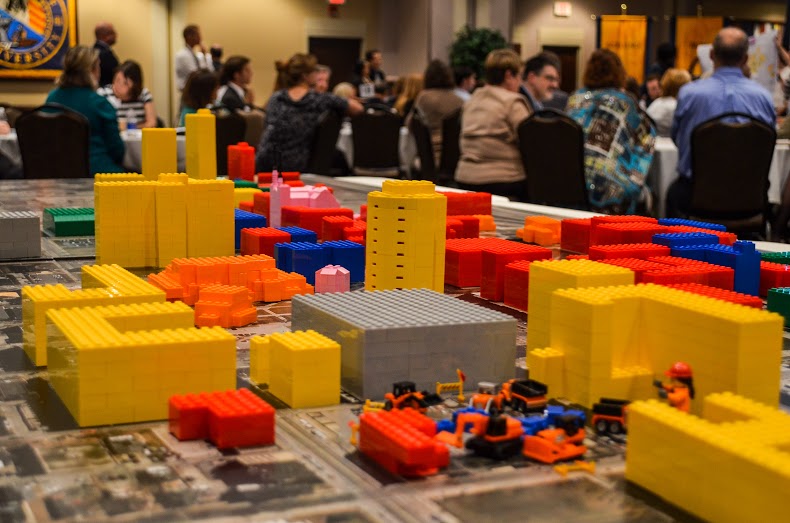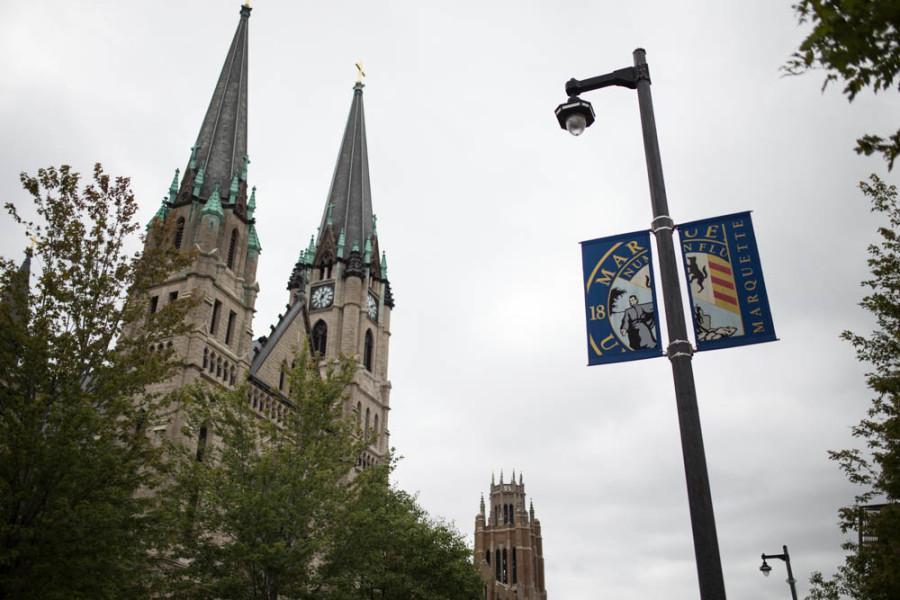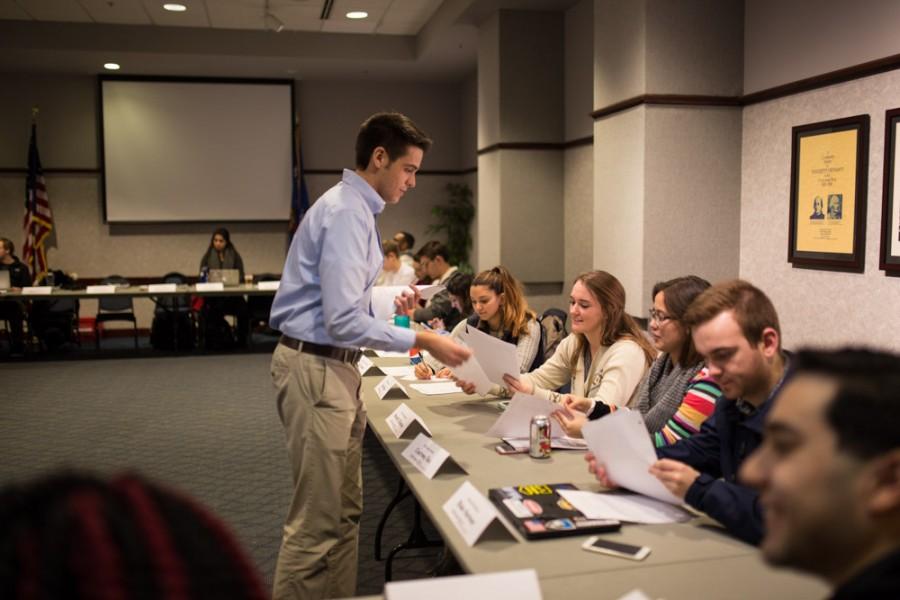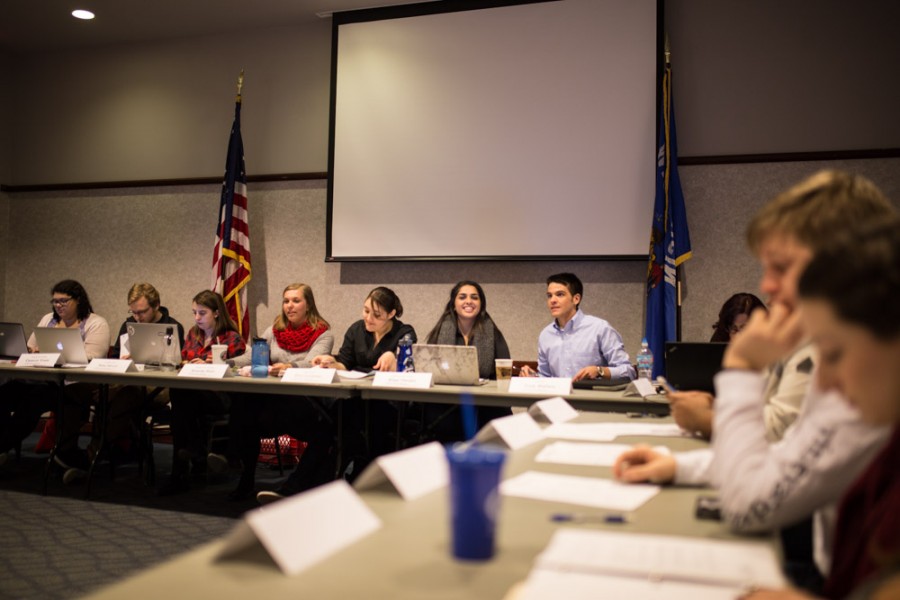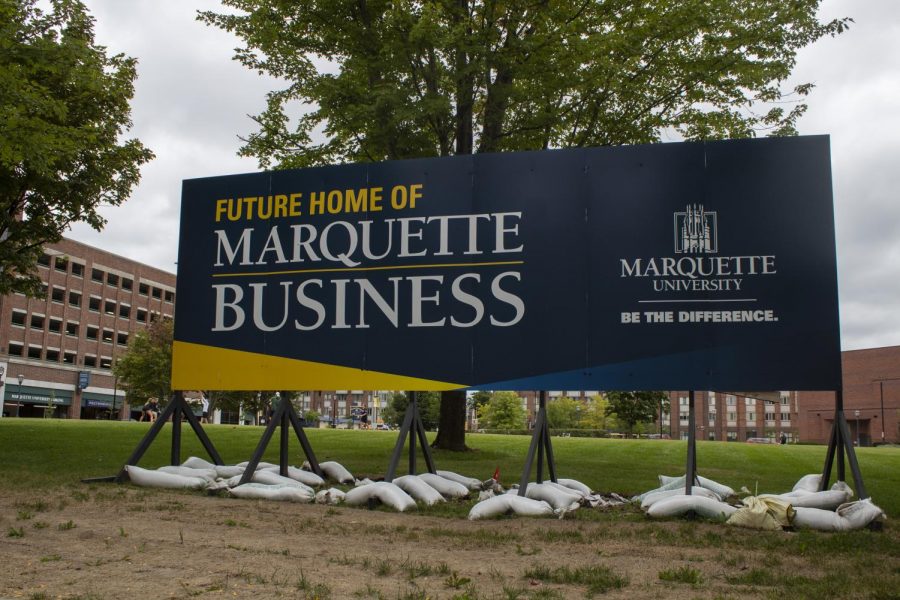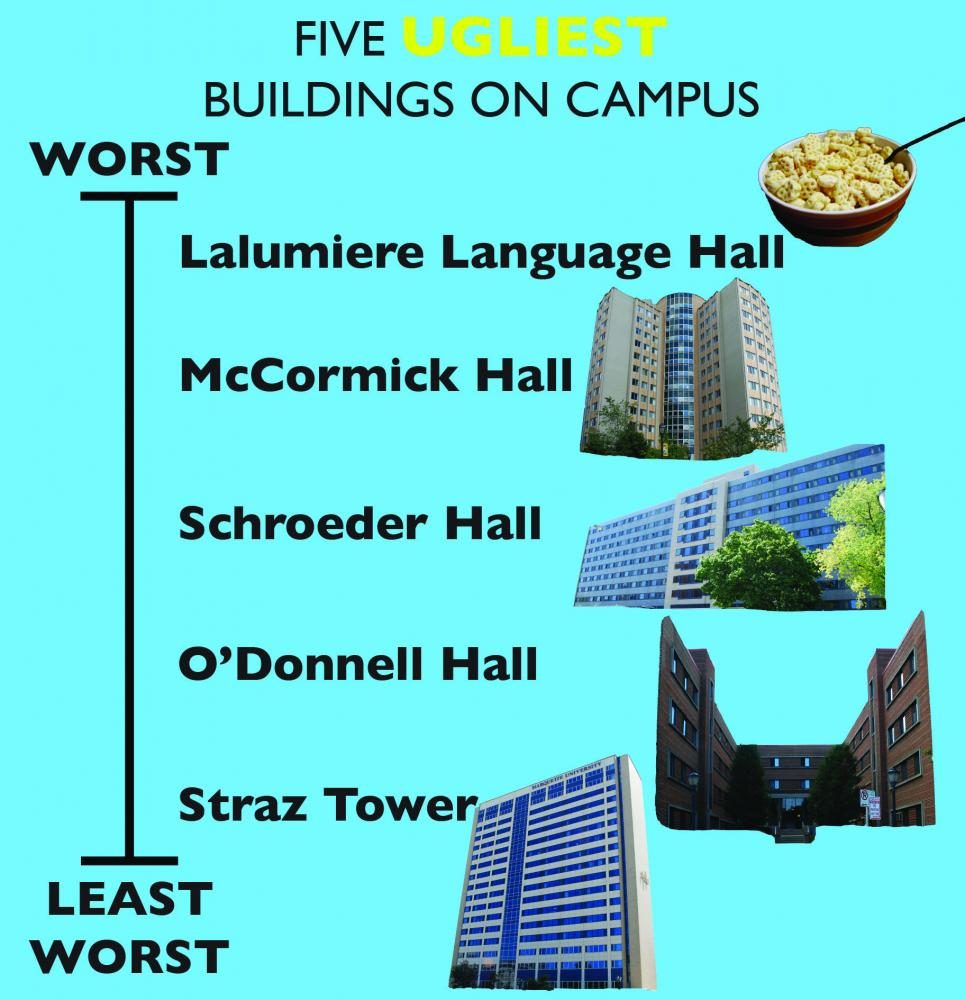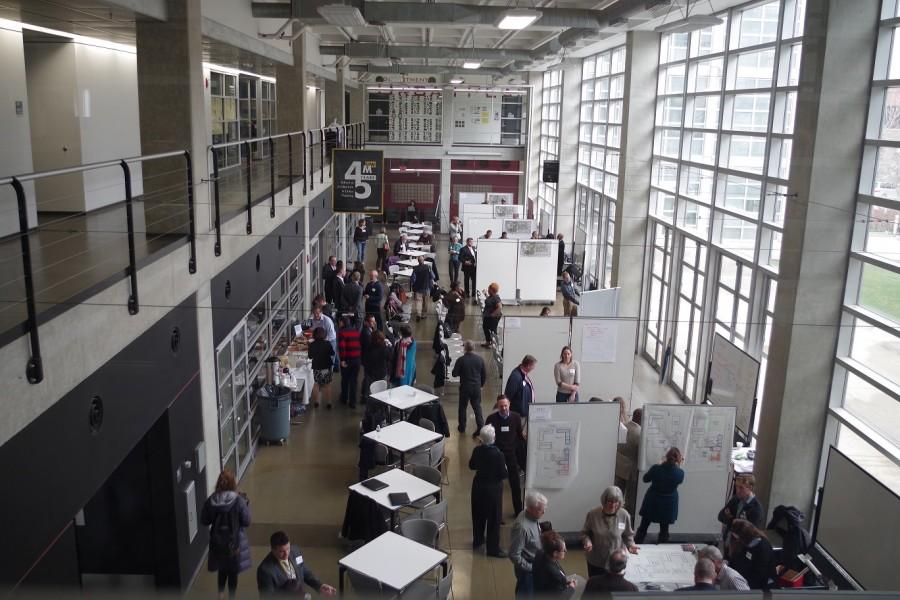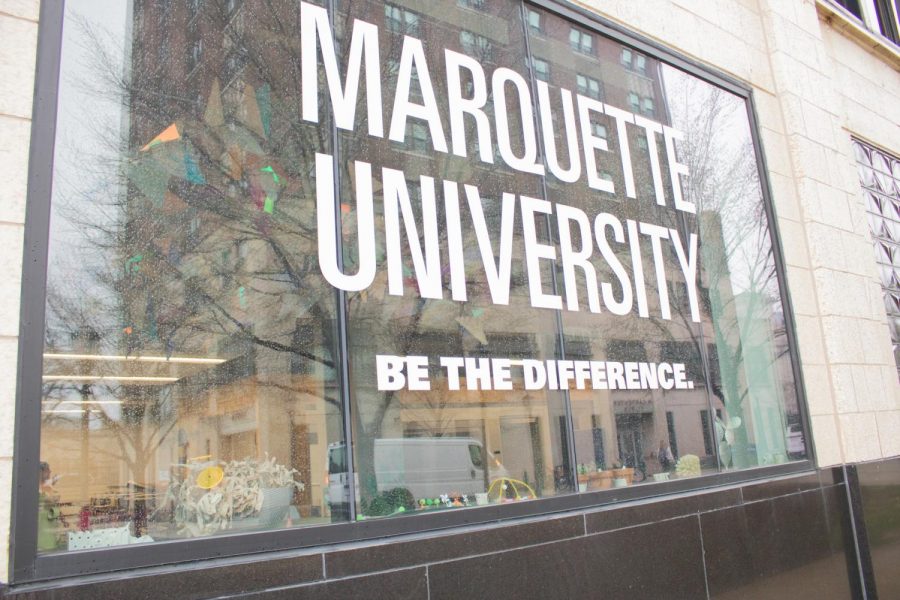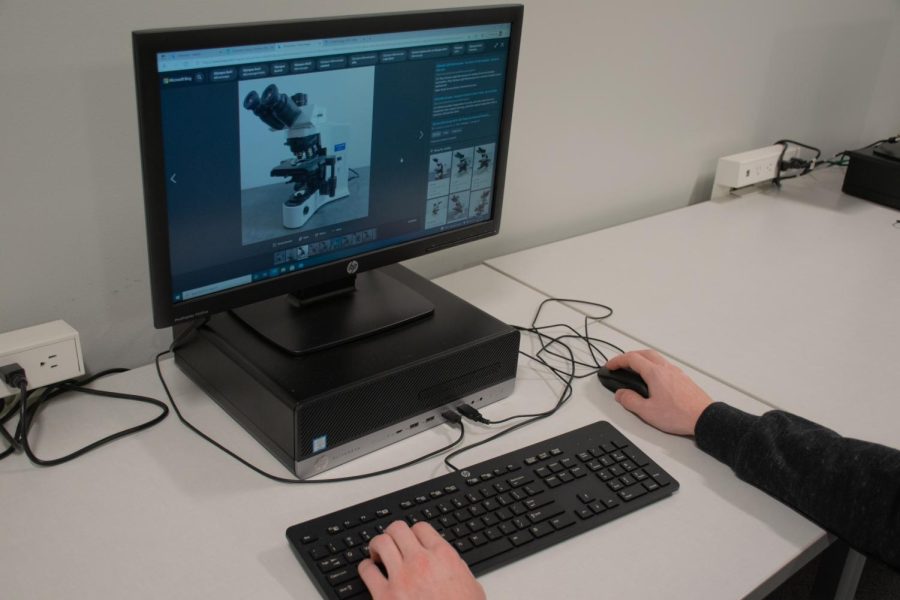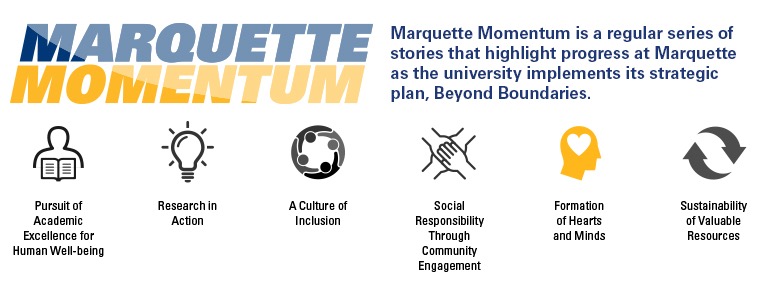The majority of attendees at the campus master plan workshop on Oct. 7 were in favor of tearing down McCormick Hall in the coming years.
Over 200 members of the Marquette community provided input on what construction projects and renovations they think the master plan, Beyond Boundaries, should include. The finalized master plan is slated to be done by fall 2016.
Architecture and engineering firm SmithGroupJJR ran the workshop and will implement the plan once it’s finalized. The firm’s goal for the event was to determine which buildings and areas on campus should be preserved, enhanced or transformed.
The overall consensus from attendees was that the university is outdated. Many members addressed problems with residence halls, the Wehr buildings, recreational centers and the Alumni Memorial Union.
The Rev. Fred Zagone, assistant to the vice president in University Advancement, said he thinks there were many consistencies in answers.
“Some of the issues in terms of what needs to be replaced are the College of Business (Administration), Straz Hall, McCormick Hall,” Zagone said. “Then you have other facilities we think are heavily utilized but need to be restored like the rec center, the AMU and (Raynor) Memorial Library.”
Many audience members agreed that the campus’ oldest buildings and spaces make up the university’s image and need to be preserved. These buildings and areas included Johnston Hall, Marquette Hall, Joan of Arc Chapel, Eckstein Hall and green spaces around campus.
Neal Kessler, landscape architect for SmithGroupJJR, said it was the largest turnout he’s seen for an event of its kind. The majority of attendees were faculty and staff, but students were present too.
“It really says a lot about the Marquette community that they care enough to come together to give their input on something important like the master plan,” Kessler said.
Aliya Manjee, Marquette Student Government vice president and a junior in the College of Arts & Sciences, said it was great to see students come out to the workshop to submit their input.
“I think the faculty and staff appreciate the student perspective on a lot of things because a lot of times they are seeing things differently than we are,” Manjee said.
Kessler said the next step is to release a master plan alternative during spring 2016 to give an overview of what the plan could be before its final version is released.
Lora Strigens, university architect and associate vice president for finance, stressed no decisions will be made until data is collected and analyzed. She said decisions will not be made simply because one person said something, and that the data gathered will drive decisions on what projects to do.
University President Michael Lovell told the workshop attendees that his biggest challenge is prioritizing projects.
“It’s one thing for me to make those decisions,” Lovell said. “But the reality is, we need the whole community to help inform us on issues.”
Zagone said his biggest takeaway from the workshop was how many people care about the university.
“The fact that so many people care about Marquette and our planning for the future shows how much people feel committed to Marquette and making it the best place for our students,” he said.

